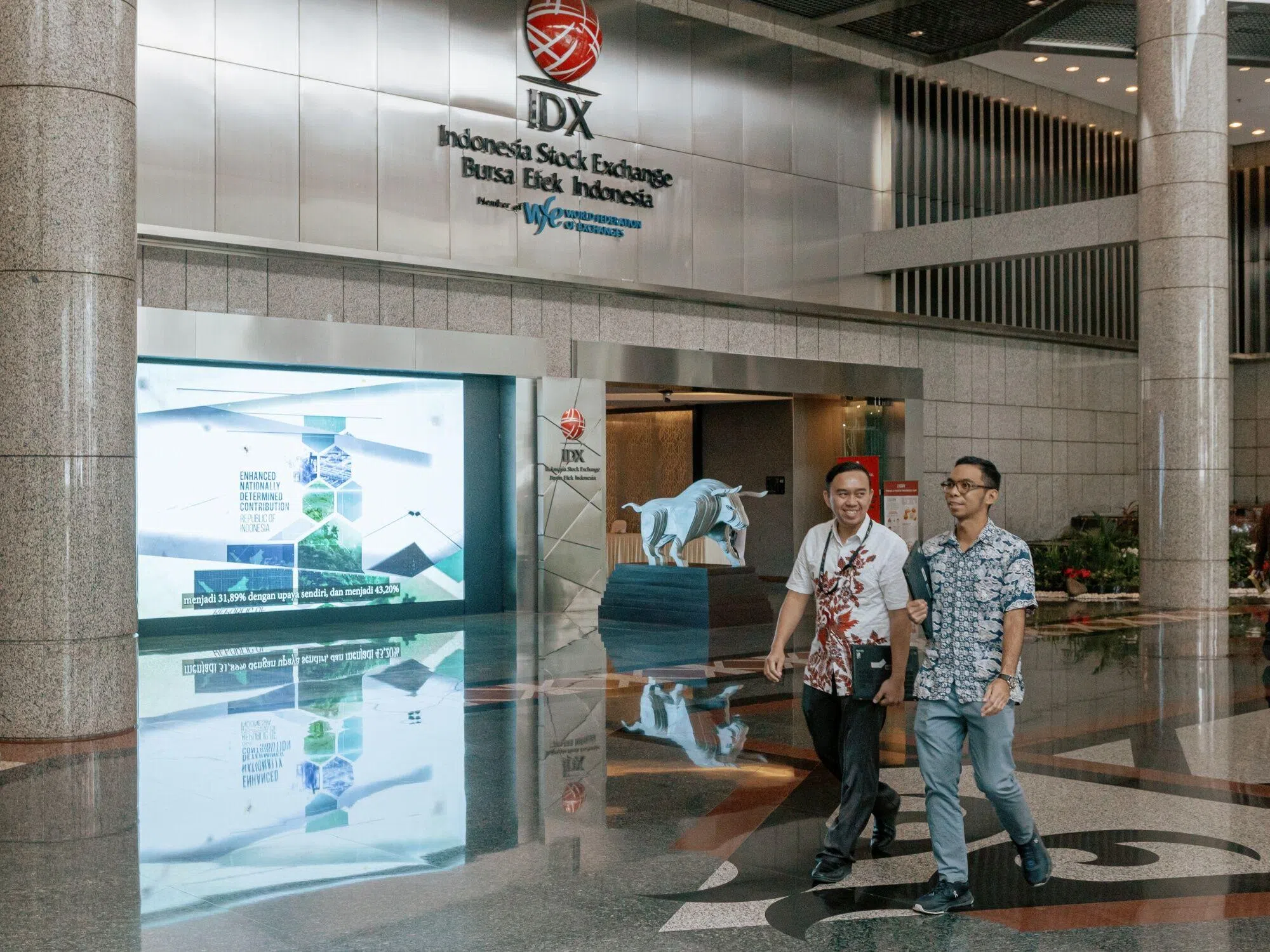[ad_1]
ITS share-price chart resembles that of an emerging-market penny stock: a 1,200 per cent surge punctuated by two crashes of more than 40 per cent – all in the span of less than nine months.
But Barito Renewables Energy is Indonesia’s biggest company by market capitalisation – an US$85 billion geothermal power producer controlled by one of the country’s richest tycoons.
Barito’s wild swings – the most extreme among companies worldwide valued at US$50 billion or more based on 30-day volatility – have perplexed professional analysts, stoked fevered trading among retail investors and now challenged regulators’ attempts to bring more order to an increasingly volatile market.
The episode is offering a fresh reminder to international money managers on the lack of transparency that sometimes comes with investing in Indonesia’s US$735 billion stock market. Barito has said little that might explain why its shares have swung so much, while Indonesian authorities have refrained from disclosing specifics behind trading curbs implemented in late May that critics say have exacerbated the stock’s volatility.
The trading restrictions “intended for investor protection ironically undermined broader investor confidence”, said Mohit Mirpuri, a fund manager at Singapore-based SGMC Capital. “In the near term, this situation will likely deter risk-averse investors, especially if perceived as indicative of broader market instability or regulatory challenges.”
The controversy dates back to last June when the stock exchange launched a new watchlist for volatile and troubled companies. The board was envisioned as a carefully crafted cure-all by regulators to return credibility to South-east Asia’s largest stock market, which had been plagued by high volatility and shrinking liquidity. Under exchange rules, a company can be added to the watchlist for several reasons, including zero revenue growth, thin liquidity and trading under 51 rupiah for three months.
A NEWSLETTER FOR YOU

Friday, 8.30 am
Asean Business
Business insights centering on South-east Asia’s fast-growing economies.
In March, the bourse amped up pressure on such companies by implementing a “full call auction” on all watchlist firms. The mechanism matches buy and sell orders, as is commonly used by major exchanges around the world during the start and close of trading. However, instead of transitioning to continuous trading, the auction would be implemented at four or five times through the day.
At first, the restrictions were met with little fanfare. That is until the Indonesia Stock Exchange placed Barito Renewables on the list in late May, without offering any specific reasoning beyond citing the “significant increase” in the share price.
The response from the market was swift. In the subsequent two weeks, shares of the company tumbled by almost half, wiping out some 700 trillion rupiah (S$58 billion) and dragging down the benchmark Jakarta Stock Exchange Composite Index by nearly 5 per cent. The gyrations spurred FTSE Russell to delay the company’s inclusion into its large-cap index that would have led to new foreign inflows.
The inclusion also angered local traders, who argued that it hurt market stability and dampened returns. In an act of defiance, they sent dozens of funeral flower arrangements to the exchange’s office, urging death to the auction. A petition on Change.org signed by 16,000 users is calling for its revocation.
The exchange has defended the restrictions, arguing that it has increased price discovery for several penny stocks and increased liquidity. Financial Services Authority Capital Market supervisor Inarno Djajadi said the regulator is benchmarking its policies with similar rules in other countries.
Billionaire owner Prajogo Pangestu has since purchased some 48 million more shares, which had surged as much as 1,342 per cent since its public market debut last October in one of the country’s most anticipated listings. The firm’s corporate secretary Merly said in a statement that Prajogo’s stake increase reflects his confidence in the firm’s prospects.
Late last month, after a massive outcry, the regulator finally removed Barito Renewables from the watchlist without further explanation. Exchange director Jeffrey Hendrik told reporters that the removal of a number of stocks was thanks to improved liquidity.
Barito Renewables only has one company analyst rating, according to Bloomberg data. The firm is majority-owned by PT Barito Pacific, which is majority-owned by Prajogo. It’s trading at 637 times 12-month forward earnings, more than three times Adani Green Energy. Earlier this year, Indonesia’s bourse checked on whether there was any stock manipulation in another firm owned by Prajogo that had surged more than 6,000 per cent since listing.
Investors worry that entering the watchlist can create a knee-jerk reaction among traders. Four companies under MNC Group were placed onto the watchlist at the end of May, including MNC Asia Holding. That stock tumbled 60 per cent in the two weeks after the placement. Shares of restaurant manager Sari Kreasi Boga plummeted nearly 70 per cent within 3 weeks of inclusion in the same month.
“Once shares enter the (full call auction), it’s like being in a dark prison, so people are in panic selling,” said Hasan Zein Mahmud, a former director of the exchange and investor in Sari Kreasi.
Analysts say the uncertainty will accelerate an exodus of foreign capital. Broad macro concerns about uncertain fiscal policy and a weak rupiah have already prompted Morgan Stanley and HSBC Holdings to downgrade the country’s stocks last month.
“The (full call auction) rule might be beneficial for small, penny stocks. But large ones like Barito, it may actually deter investors, especially foreign funds given the less transparent and market-driven process,” said Sufianti, an analyst at Bloomberg Intelligence. BLOOMBERG
[ad_2]
Source link




